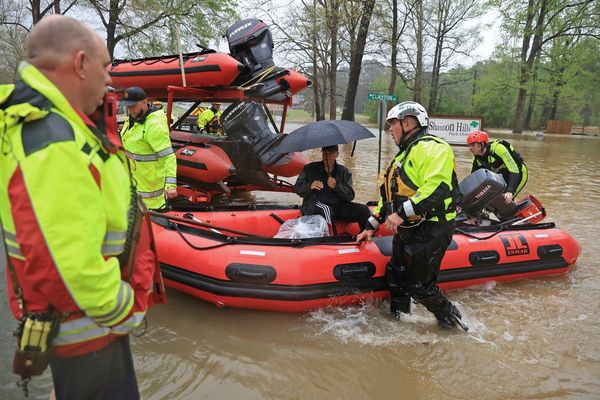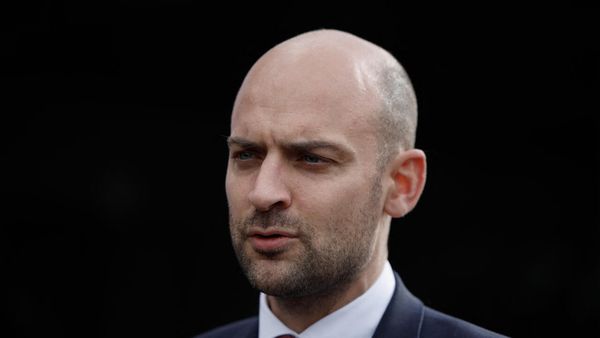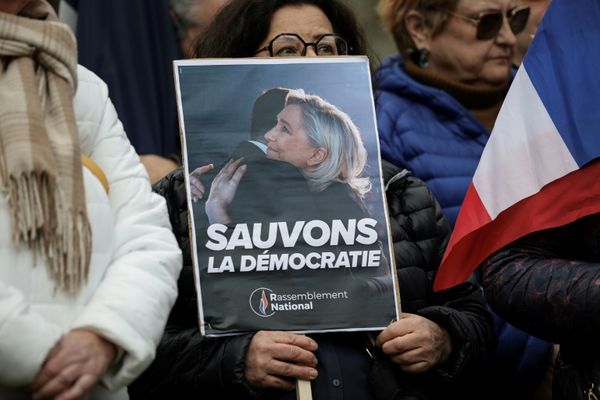Burning Man’s annual gathering in the Nevada desert has never been easy on people’s lungs. The fine dust and sand coats every surface and enters every crevice, often causing respiratory symptoms attendees refer to as “playa lung.” But COVID was also present on the playa this year, and just how much is just becoming clear now, as the cleanup begins.
Many of those dusty revelers who returned over the past week from the festival, which officially ended on Labor Day, are discovering their sore throats and slight coughs are not just the the normal symptoms after a particularly hot and dusty week of partying — it is also COVID in many cases.
“The party is over, and now the cleanup has begun,” said Dan Abbott, a former Bay Area resident and long-time Burning Man participant, “and people are getting sick.”
There are no official numbers on how many festivalgoers became infected. But many attendees have posted on Twitter and Reddit that they tested positive during the exodus, or a few days after getting home. Some left early after testing positive, and a few threads in the Burning Man community on reddit encouraged those returning from the festivities to test themselves, as the ranks of those testing positive in the days after grows.
Abbott and hundreds of others are still in the desert cleaning up from the event. They work for several weeks on either end of the official event while employed by the organization to help set up and break down Black Rock City, the temporary city erected in the desert.
Abbott understands why many of the 80,000 festival goers let their guards down for the event, which was officially canceled the previous two years because of the pandemic.
“A lot of people are just tired of being worried all the time,” Abbott said last week, but he took “extreme caution,” and has avoided infection so far. Not all of his friends and fellow workers are so lucky, “a lot of our long-term people are down for the count right now.”
Dominique Debucquoy-Dodley, a spokesperson for the Burning Man Project said the organization has “seen reports from participants and camps that some people are apparently testing positive now.”
The organization did not provide numbers for how many reports of positive cases they received, or how many participants were treated for COVID by the medical team. But, he said, “the numbers don’t seem extraordinary.”
Before the event, the organization posted on its website that “there will not be any health or COVID-19-related entry requirements for Black Rock City this year.
While they encouraged participants and camps to enforce their own rules, some attendees think the organization could have done more to prevent the spread of the virus, and some complained they bought tickets under the impression there would be an official health check.
“We shared guidance for all participants to help minimize the risk of contracting and spreading COVID-19 at the event,” said Debucquoy-Dodley.
While COVID’s fatality rate has dropped significantly, and most vaccinated people have mild illnesses, getting sick on the playa is no joke. “It’s hard for a staffer who is stuck with a contagious disease at a big libertarian kissing festival with no running water,” Abbott said.
Even for those who are trying to be safe, extreme conditions made it harder. Tim Holt, from Corvallis, Oregon, got to the playa early, a week before the event officially started on August 28, to help to set up his camp of about 70 people, including many from the Bay Area. A week after arriving he started feeling off, but chalked it up to the heat, dust, and his asthma after several days with the event in full swing. By Friday, Sept. 2, he took a rapid test, and it showed positive immediately.
“I conferred with a few of the camp leads and it made a lot of sense for me to pack up and leave,” he said in an interview, a week after his positive test. He left that night in whiteout dust storm conditions. “Not only did I not want to get others sick, but I really didn’t want to get sicker there,” he said.
Holt’s camp took some precautions, including a vaccination requirement, and despite having some shared areas for dining it wasn’t a “cuddle-puddle type of camp.” In the days since getting home he said he has heard of a dozen people from his camp who tested positive.
Abbott and many others lament the outcome, but he said he didn’t know how much the organization can do. “The participants’ behavior is largely what has led to a difficult situation for the workers,” he said.







